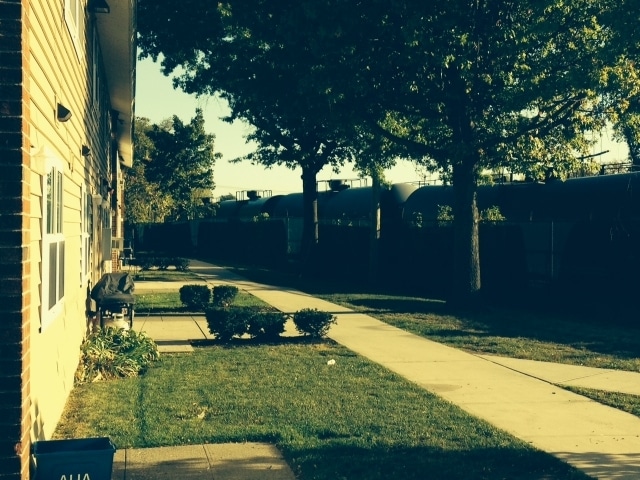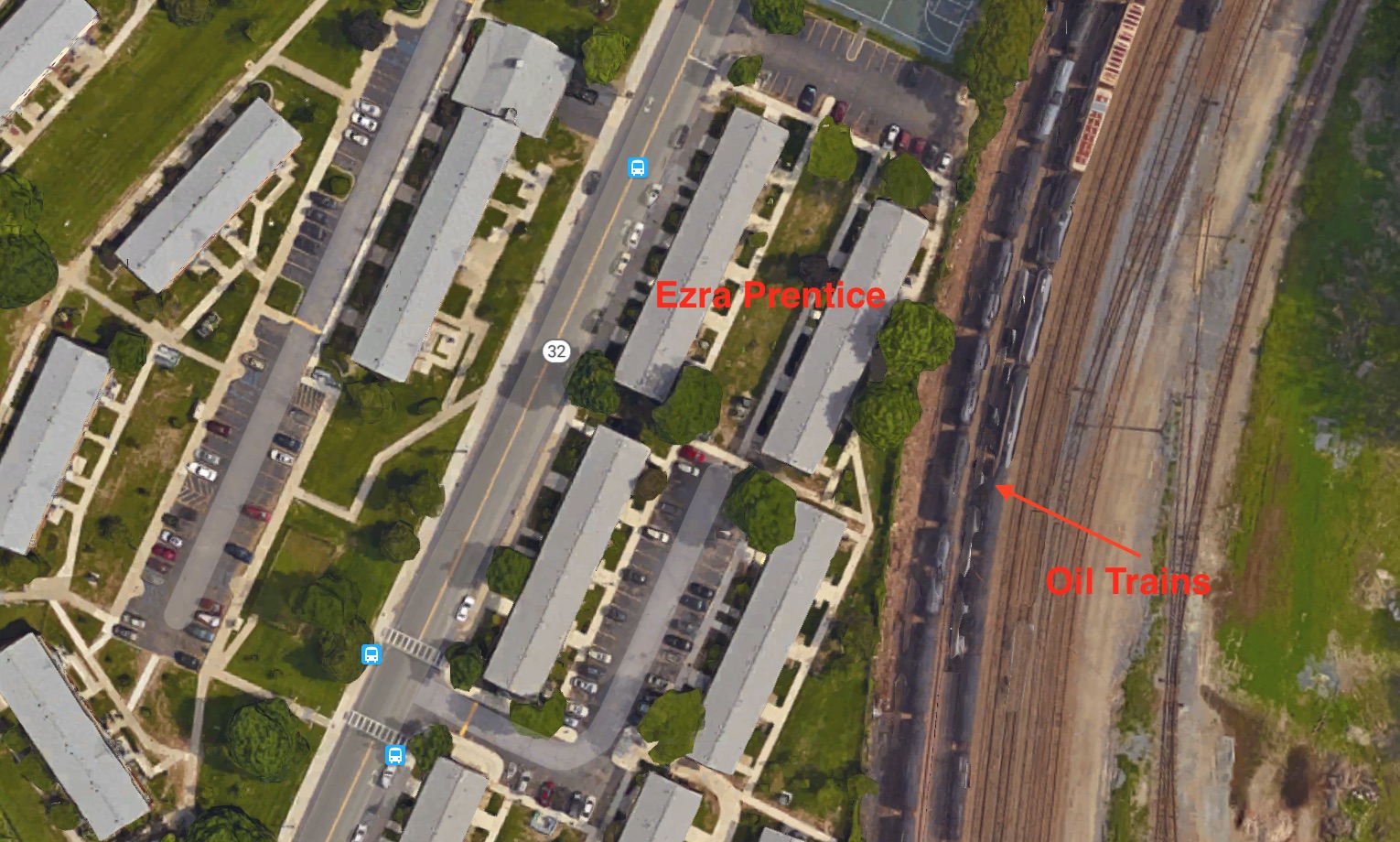The people of Albany, New York, got some good news last Friday about their port’s oil-by-rail facilities.
“Global Companies must restart its environmental review process, given the significant new information about the benzene levels in Albany’s South End community and the hazards of crude oil transport,” said Department of Environmental Conservation (DEC) Commissioner Basil Seggos. “DEC will ensure that this process includes a meaningful and thorough opportunity for public engagement.”
Global Companies and Buckeye Partners are the two companies operating oil-by-rail facilities at the Port of Albany. While the letter last week was addressed to Global, the DEC has announced both will have to restart the environmental review process.
In 2014 DeSmog reported that the “residents of the Ezra Prentice apartments in Albany, N.Y., have been complaining about air quality issues ever since the oil trains showed up in the Port of Albany two years ago.”
The Ezra Prentice apartments are publicly supported housing units that are literally right next to the tracks transporting oil trains.
Image credit: Google Earth
At the time we also noted that “testing by the New York State Department of Environmental Conservation (NYS DEC) has confirmed their fears. In 20 out of 21 air samples taken by the department, benzene levels exceeded the long-term benzene exposure standard. Benzene is a known human carcinogen.”
Unfortunately, as we reported, the state’s response to that information at the time was troubling.
“The department reached a shocking conclusion, relayed to the residents of Ezra Prentice by research scientist Randi Walker at an August meeting: ‘The bottom line is that we didn’t find anything that would be considered a health concern with these concentrations that we measured.’”
While it has taken two years to happen, it appears that these air quality issues will finally be addressed.
Charlene Benton is the president of the Ezra Prentice Homes Tenants Association and has been relentless in her efforts to have the state deal with these issues. Benton was pleased by the news.
“We welcome DEC‘s decision to at long last require Global to answer for its impacts on our community. For too long, we have been forced to breathe polluted air and fear for our safety as Global has turned our neighborhood into a major crude oil hub,” said Benton. “We will continue to fight for clean air and a healthy and safe environment for our children and for the entire South End community.”
Action Is Four Years Too Late
When the state issued its initial permit that allowed Albany to become the largest oil distribution hub on the East Coast, it did so without public input. As a result, this opportunity will essentially be the first full review of the permit allowing the port to operate an oil-by-rail facility.
As I wrote in June 2014 for Albany’s alternative newspaper Metroland in an article titled, “The Invisible Bomb Trains,” Global’s initial application snuck under the local radar. The public comment period went unnoticed, and no one submitted a single comment.
One day, however, mile-long trains carrying Bakken crude oil started showing up in Albany, which quickly grew into a major East Coast center for distributing oil.
The local community now has some cause for celebration with the news that the DEC will likely take a good hard look at the environmental risks associated with these oil trains. The DEC‘s letter includes a long list of concerns, including the volatile nature of Bakken crude oil, the higher-than-expected benzene levels in the vicinity of the facility, and the potential impact of the proposed Pilgrim Pipeline, which would be supplied by oil trains arriving in Albany.
Additionally, the letter notes that “Global should develop an enhanced outreach plan as part of the permit application process which should fully explore the impacts of Global’s existing and proposed crude oil operations on the nearby environmental justice community.”
As has been widely documented, oil-by-rail facilities tend to be located near low-income, minority neighborhoods, as is the case in Albany. Ezra Prentice is on the edge of the city of Albany and essentially separate from the rest of the city. Most residents of Albany have no interaction with the neighborhood.
And while this latest development is a good start, the residents of Ezra Prentice have now been dealing with this issue for four years, with their chance to be heard only coming now.
Main Image Credit: Justin Mikulka
Subscribe to our newsletter
Stay up to date with DeSmog news and alerts








